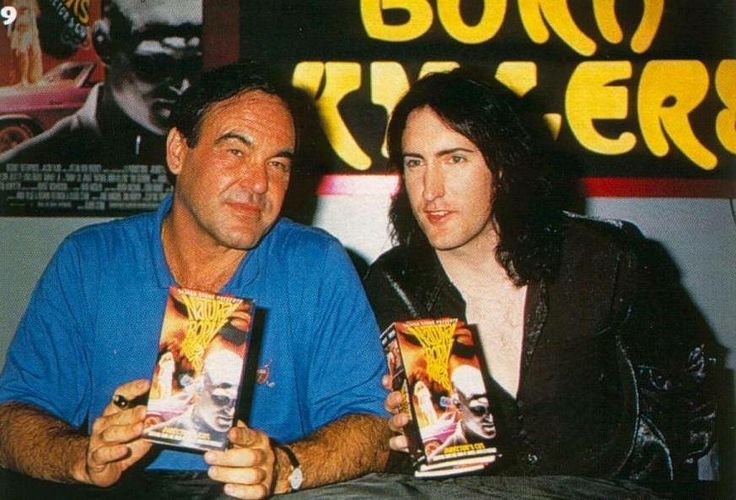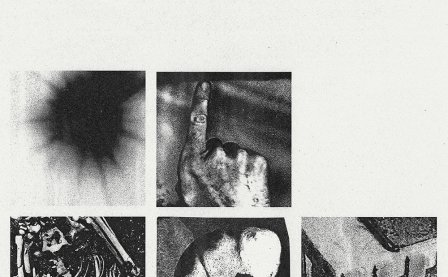It’s probably not controversial to say that the cinema of Oliver Stone has aged poorly. His puerile transgressive tendencies are too silly to shock in the sober light of the 21st century, and his ham-fisted attempts at political/social/cultural commentary make it difficult to enjoy his films even as guilty pleasures. If there’s one thing that Stone did right as a director, though, it was giving Trent Reznor the soundtrack to his two-hour-long cry to be taken seriously as an artist, Natural Born Killers.
While Reznor is a regular on the red carpet these days for his collaborations with Atticus Ross on David Fincher film scores, back in 1994, he was still known primarily as the dude who wrote that “fuck you like an animal” song. As such, he must have seemed like a naturally edgy choice for the king of cinematic edge to put in charge of the companion album for his most edgy of edgy motion pictures. Yet anyone coming to the NBK soundtrack looking for an onslaught of radio-friendly industrial metal was in for sharp disappointment. Sure, “Burn” is one of the most punishing tracks Nine Inch Nails ever committed to tape, and “Forkboy” by Ministry and Jello Biafra supergroup Lard is a kick in the shorts, but the album as a whole eschews heaviness for heaviness’ sake, actually omitting such seemingly on-brand contributors to the film as Marilyn Manson and Rage Against the Machine.
In what was a novel approach at the time, Reznor assembled the album as a collage, rather than as a discreet collection of tracks, editing selections down, splicing in dialogue and sound effects from the movie, and, in some cases, combining songs into entirely new compositions (Both the Clerks and Pulp Fiction soundtracks would do something similar in the coming months, although not with the same degree of finesse). The result is an album that feels very much like… well, an album. The film’s rambling narrative is transposed into the soundtrack in a hauntingly surreal fashion. We follow Mickey and Mallory through the ups and downs of their relationship, through moments that are alternately tender (The Cowboy Junkie’s cover of “Sweet Jane”), harrowing (Peter Gabriel and Nusrat Fateh Ali Khan’s “Taboo”), and incongruous (Patsy Cline’s “Back in Baby’s Arms”).
On a personal level, the album served as an important introduction for me to artists like Patti Smith, Leonard Cohen, and Diamanda Galas. But, more broadly, the Natural Born Killers soundtrack was likely the first exposure much of its audience got to mashups. While the mashup had existed in some form practically since the beginning of recorded music, in the mid-90s, it was still mostly the stuff of novelty records, experimental composers, and underground DJs. NBK provided a more visible platform for the compositional technique than it had previously enjoyed. “Sex Is Violent” is a high-water mark in that regard. The song pivots from the first verse of Jane’s Addiction’s “Ted, Just Admit it” into Diamanda Galas’s sparse, piano-accompanied rendition of “I Put a Spell on You,” only to intertwine the two in the run-up to its conclusion. Galas’s shrieked declarations of possession drift over Perry Farrell’s mantra that “Sex is violent” in a manner that escalates the intensity of both songs.
To this day, I’ve never seen Natural Born Killers. I’ve never felt the need to. The album weaves such a compelling story all its own that I fear filling in its pregnant ellipses could only serve as a disappointment. More than just a killer mix, the NBK soundtrack is a masterful composition of found sounds that deserves serious consideration apart from the film it was nominally created to promote.
More about: Nine Inch Nails, Trent Reznor



